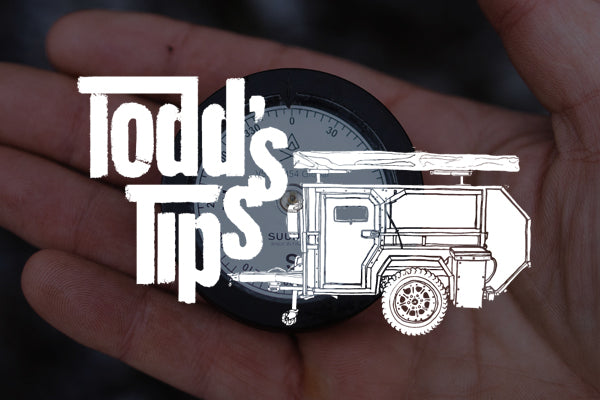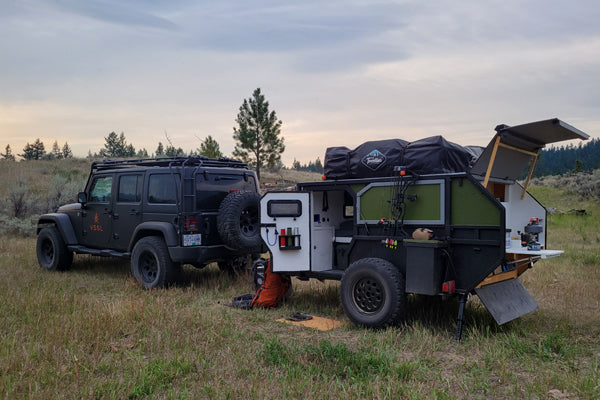
It’s unfortunate, but true - we’re rapidly leaning away from traditional navigation devices in exchange for the ease of electronic ones. I grew up before GPS enabled devices were available. In my two summers at WOTS (Wilderness Out Tripping Survival Camp) and summer of COTS (Canoe Out Tripping Survival Camp) in Saskatchewan, we were taught proper navigation: with a compass and topographical maps. Later in life I went on to apply some of those skills to navigation in both coastal and offshore sailing. I took a stab at celestial navigation as well, but like many things, if you don’t practice it, you lose it. I love the fact that these instruments use to guide people across oceans and unchartered lands many generations ago, and that their underlying principles are still in use today. So, when I made our first VSSL, a compass was essential - though I will admit that I now lean far more on the convenience of electronics. But I also know that there is substantial value in having skills that can come into play if your device fails!
Knowing that in our modern world people generally have limited compass skills, we intended ours to be used ONLY if you know there is a substantial landmark, like a town, lake, road or river in a KNOWN direction from your current location. For example, you know there’s a powerline due east of you and that it runs north south. And that by travelling south, you know this powerline intersects a logging road that leads back to your vehicle. So, in this case you would use your compass to take you on that easterly heading to the powerline. It’s as simple as walking in the direction of the “E” on your compass to guide your intended course.

A couple of key things to remember:
#1. If you're lost, you should almost always stay in place and wait for rescue. But if there is no other choice and you must get yourself out, use the compass to walk in a straight line, AND, if at all possible, towards a known landmark as mentioned above. BUT otherwise, STAY PUT.
#2. Due to magnetic pull, a compass should always point north. Be careful that your compass isn't being affected by any metal you might have on you. Keep it away from phones, knives etc. And keep the compass flat when reading it. The needle (or compass card) sits on an axis point and the accuracy can be affected if tilted.
PRO TIP #1: Not related to navigation, but still a potentially lifesaving use of a compass. Given the choice between lighting a signal fire or leaving if you’re lost or injured, a signal fire is the priority. I’ve found that the oil in our compasses can greatly assist in starting a fire. I’ve soaked our expandable bamboo cloths in our compass oil and found that it extends the burning time of the cloth from about a minute to over 3 minutes! This extra time can be critical when lighting your fire.
While we pride ourselves on making rugged compasses, the case can be cracked open with your knife (or a rock) to create an opening for the compass oil to drip. Soaking a piece of clothing or paper towel will also work. The oil basically makes the soaked material function like a slower burning wick. The oil itself isn’t highly flammable (like gas). What it does is slows down the speed at which the soaked material burns.
VSSL Camp Supplies comes standard with a compass end-cap. If you’re in a colder weather part of the world, you can upgrade to our Suunto version compass, as it can function extremely well in temperatures below -20, whereas our standard compass is good to about -10.

PRO TIP #2: Cold weather causes the oil in the compass housing to harden and restricts the movement of the compass needle. However, if you find yourself in colder temps, and still need to read your compass, just put it in your pocket for a couple minutes to warm it up and that’ll get it moving again.
Knowing that you can trust whatever navigational aid you use is important for being able to get out there and enjoy the outdoor adventure you have planned. Always remember, be prepared for the conditions, and let someone know where you’re going and when you’ll be back!





Leave a comment
This site is protected by hCaptcha and the hCaptcha Privacy Policy and Terms of Service apply.